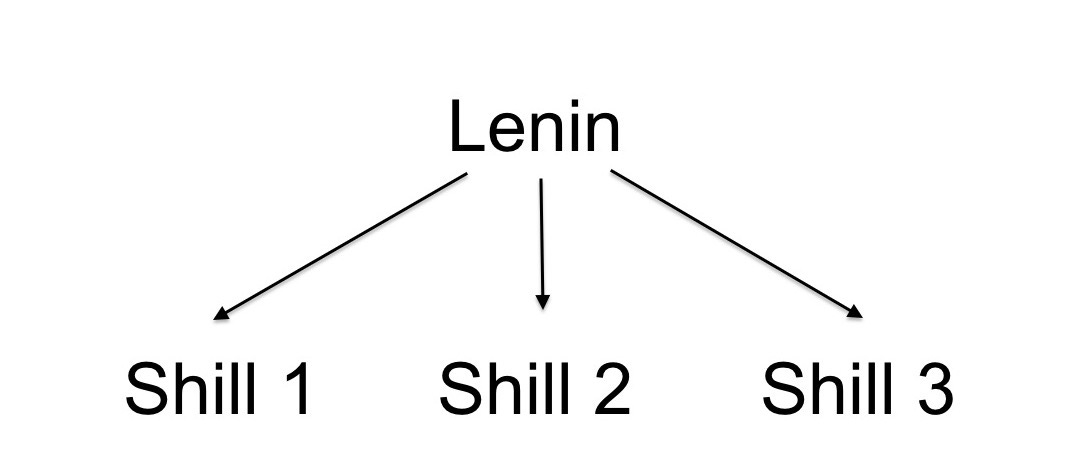Short answer:
It was handed to him, by Vladimir Lenin
Stalin was Lenin’s most trusted, unquestioning shill and henchman. A bootlicker. For Lenin, he had been a tool, and a useful tool. What made him particularly useful is that he was a funny bumpkin with little authority among the old Bolsheviks. Not a man to worry about.
So, Lenin delegated him administrative control1 over the Party
And then, Lenin died
Long answer:
We underestimate the degree to which Vladimir Lenin was one and only leader of the Bolsheviks. As long as he lived, Lenin led the party, personally and directed it, personally. Time after time, Lenin bound the party to his personal will, contrary to the wishes of majority, and even to the wishes of the rest of the party leadership.
All the key decisions of Bolshevik policy starting from raising the armed rebellion in 1917, to signing a humiliating piece with Germany in 1918, were personally proposed and enforced by Vladimir Lenin, against whatever outcry, and direct opposition they faced in the party ranks. All the painful, yet necessary U-turns2 of the party lines came as a personal decision of Lenin.
How could Lenin do it? Well, he did not hypnotise everybody, nor did he activate a microchip in everyone’s brains to force them into submission.
By and large, he just always got the vote he wanted, whatever the others wanted.
Now to always get the vote he wanted, he manipulated the internal politics of the party, most importantly, its electoral processes. Managing and manipulating them constituted his main job as a party leader.
All other stuff was just busywork.
Time after time, Lenin found himself in the minority. And yet, with bold strategic manipulations he would transform it into the majority he wanted, and into the vote he needed.
That is how the democratically governed Bolshevik Party was bound to the will of one single man.
Now how could he do that? (you may ask)
Well, of course, he could not do it alone.
He needed other people
How did Lenin’s personal power work
You have a formal structure (the Party)
And there’s nothing in its formal rules and regulations that says the Party must obey your every decision. To the contrary, the party is democratic and run bottom-up.
You have the grassroots cells, the township cells, the regional cells. All of them vote, and elect their leadership. From time to time, they send their delegates to the All-Party congresses, to elect the supreme leadership of the Party. If the leadership finds itself in minority, it can be outvoted. It may be even replaced, fully.
How do you manipulate such a structure?
Through people. Because the party consists of people.
Within this formal organisation (the Party), you have your own, informal network of influence (let’s call it the Faction). If the party is defined by procedures, regulations and decrees, the Faction has nothing of that. It is defined by personal, informal relations with the Old Man. It is an invisible, uncodified structure based on the ties of personal friendship and let’s be honest, personal vassalage with Vladimir Lenin.
This is a very important point, and I want to reiterate it.
In theory, and in formal, party regulations, all the members of the same committee (let’s say Politburo) may have exactly the same status.
What draws the difference between them is not the formal difference in rank (there may be none), but a difference in their informal status.
What makes the difference is ultimately, their sociometric rank in the network
Lenin and his vassals. Their formal rank in the Party may be exactly the same
Now the thing with these vassals of Lenin, is that many of them had vassals of their own. So, we could continue this network of vassalage further down
Keep reading with a 7-day free trial
Subscribe to kamilkazani to keep reading this post and get 7 days of free access to the full post archives.




